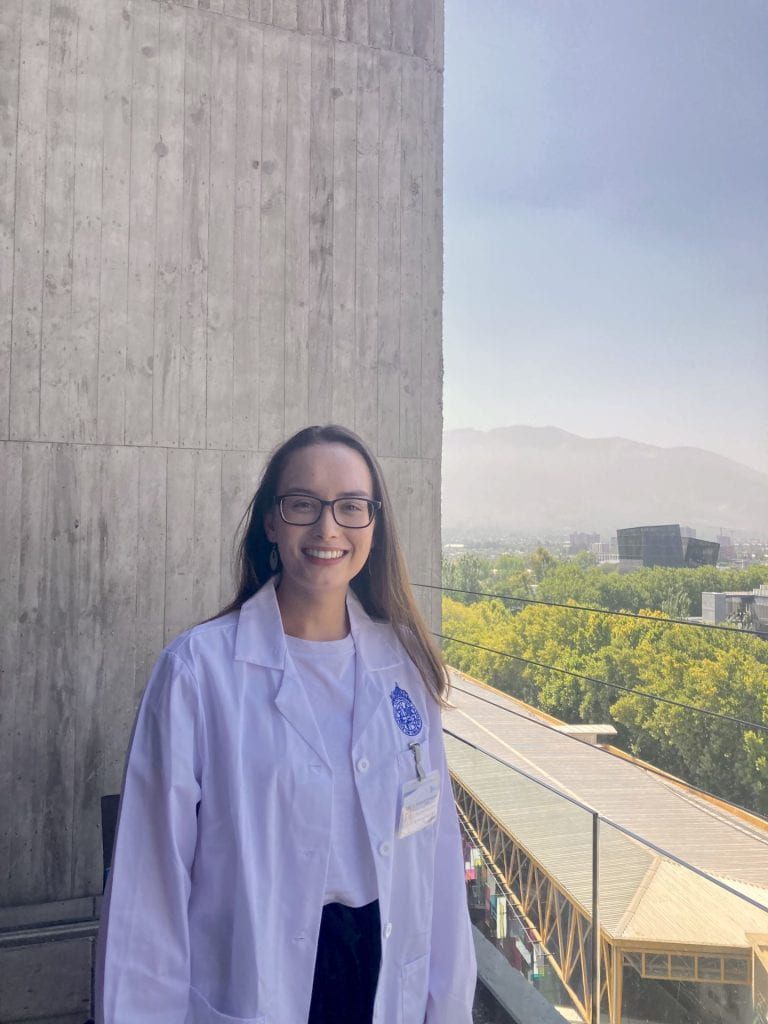This past week has been very full-on but equally inspiring and enlightening! We started off the week with a class on One Health, which is an approach of attaining sustainability and balance of health through the idea that the health of humans, animals, plants, nature, and ecosystems are intrinsically interconnected. This approach was very interesting to learn about since I’ve never heard of this term before. However, it’s something I believe in that global health can only be achieved for all living things in the world if we work together and recognise that health issues don’t occur in isolation. This was made salient after class where we were given a tour around the beautiful campus garden, scattered with native plants, medicinal herbs, fruits, and vegetables. We were taught about the different uses of the plants, from insect repellents to digestive aids, which really brought home the message about One Health, that nature has such an essential role to play in public health.

On Tuesday and Thursday, we had the incredible honour of touring two different hospitals as part of our field observations. I was pleasantly surprised by all that we saw! Before each tour, we were given a short lecture on how the hospital runs, what facilities and treatments they have, who the main patients are, and how the hospital functions. From there, on our first observation, we were shown where the temperature, oxygen, and water are controlled and managed in the hospital. This was so eye-opening because usually, people only think about healthcare professionals as being the people who run hospitals and treat patients, but the service and operation staff play such a vital role in keeping the entire hospital running, especially in times of need, such as during the 2010 Chilean earthquake. This experience really changed how I see hospitals and maybe all types of systems, there are so many people working in the background that they play an equally important role in public health systems to help support society as efficiently as possible. We were also privileged to observe two operations and view live X-ray images, which was amazing since it’s something you see in movies but never expect to see in real life, especially since my field of study is psychology, not in the medical and health sciences. Learning about the multifaceted public health system in Chile makes me want to also research more about the health systems in the other countries I grew up in (Thailand, Germany, and Japan), and what makes them differ or what similarities there are. I’m excited to learn about the experiences of Mapuche and Aymara communities with the Chilean public health system, which will be the focus of next week’s lectures!



On Wednesday, we were joined by a lovely group of students from South Korea for a global leadership workshop. This workshop facilitated our understanding of the importance of building intercultural connections and global leadership skills. For me, it is especially crucial to keep learning more about global leadership and intercultural skills since I hope to continue my studies and research in different countries. I would love to be able to return to Chile in the future to do research in the field of social psychogerontology! At the end of the workshop, we took part in an activity to learn more about the Mapuche Land Conflict, where we were educated about the salience of the ongoing conflict, debates about the Chilean constitution, and the socio-political drivers of this conflict. It was also an interesting opportunity to reflect on what we know of historical and current land conflicts in Aotearoa and how these conflicts may differ or be similar.
On Friday, we went on a day trip to Valparaiso and Viña del Mar, coastal cities a few hours out from Santiago. I think everyone in the group was ecstatic to see, smell, feel, and hear the ocean again. As much as I love the mountains in Santiago, it was a pleasant change of scenery. It was interesting to see the contrasts and unique differences between Santiago and other cities, where some areas can be recognised as having strong European influences, and also to learn about the connections between nations and historical events of colonisation in Chile since Valparaiso was the first area that was colonized in Chile.



Instead of having a relaxing weekend off, I went on my first-ever hike, a 5-hour hike in the scorching hot sun in the foothills of the Andes in the Parque Natural Aguas de Ramón. It was an incredible adventure! I saw native animals, which was lovely since I enjoy wildlife photography (especially birds), which is one of my hobbies! The natural environment was very different from Aotearoa, which was also interesting to see, as I am generally used to rainforests and more tropical environments rather than dry, almost desert-like environments. Seeing so many cacti and a black-chested buzzard-eagle were definitely highlights! The experience makes me want to try hiking in Aotearoa when I’m back.






On Sunday, we went to San Jose de Maipu, where I was again amazed by the beautiful and endless mountains towering over us the entire trip. I think I might have too many photos and videos of the mountains, but I still stand by my statement that no one could get tired of seeing these mountains! For lunch, I finally ordered Pastel de Choclo, a dish filled with sweetcorn, boiled eggs, minced beef, and chicken. It was sooooo yummy!! It was definitely the best thing I’ve tried so far in Chile. I would definitely recommend trying it if you have the opportunity to go to Chile!



Overall, during the second week of this Prime Minister’s Scholarship, I’ve had the wonderful opportunity to explore various aspects of Chile, from the health system to the natural environment. I’m looking forward to even more life-changing experiences and exchanges of knowledge next week!
See you soon!
